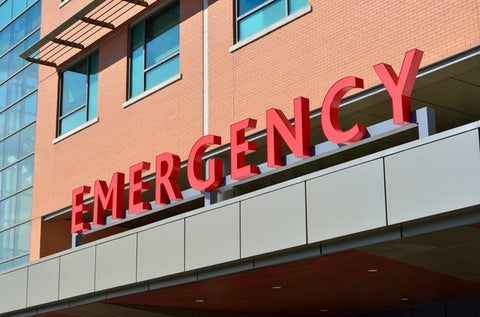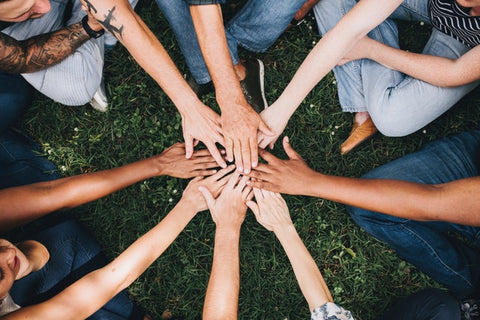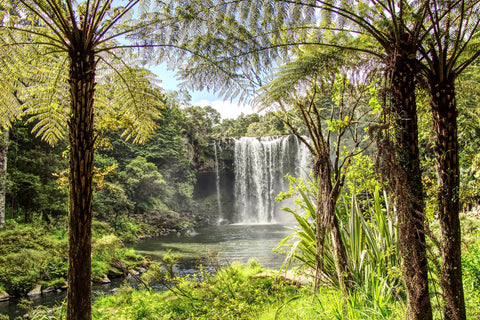Alarm bells Are Ringing - It's a Climate Emergency!
“The unprecedented rate of global warming is melting the polar ice caps, raising sea levels and undermining food and water security for many of the world’s peoples. Action has been too slow, because economics has trumped physics. Now emergency action is the only rational response.”
Over the last 6 weeks, eight councils around New Zealand have voted to declare a state of climate emergency. These local governments represent over half of our country’s population.
Such decisions send a strong signal that it’s time to take bold action to protect our environment, and that now is the time to act if we want to have a beautiful world for generations to come.
This follows on from the school climate marches that took place earlier in the year, and shows a renewed commitment from decision makers to take bold action towards lessening the impacts of climate change.
What is a climate emergency?
According to Auckland Councillor Penny Hulse, a climate emergency is “a call to action for council to take seriously its role in climate change, to work with our partners on how we resolve this and to make sure that all policies we set and all budgets we set are set with a climate change lens in mind”.
This movement has gained global traction thanks to an extraordinary group of volunteers in Australia, the ‘Climate Emergency Declaration’. They have been “call(ing) on elected leaders to declare a climate emergency and initiate a society-wide mobilisation” since 2016, and now it is gaining some serious traction.
More than 650 local jurisdictions and governments throughout the world representing over 119 million citizens have declared climate emergencies and have committed to taking bold measures to protect our planet.
Which councils around New Zealand have declared a state of ‘climate emergency’?

- Nelson City Council - declared on 16th May, 2019.
- Canterbury Regional Council - declared on 16th May, 2019.
- Christchurch City Council - declared on 23rd May, 2019.
- Kāpiti Coast District Council - declared on 23rd May, 2019.
- Auckland City Council - declared on 11th June, 2019.
- Wellington City Council - declared on 20th June, 2019.
- Dunedin City Council - declared on 25th June, 2019.
- Hawke’s Bay Regional Council - declared on 26th June, 2019.
We’re all in this together

As cliché as it might sound, there is no planet B and good planets are (surprisingly) hard to find. If we want to live in a prosperous and sustainable world tomorrow, we all need to do our part today.
So what can you do as a consumer?
- When you’re shopping, consider asking the question ‘where has this product come from and what impact does the supply chain have on our planet?’ - whilst it is easy to blame polluting businesses for damaging the environment, they only exist because consumers purchase their products. The best way to send a message is by voting with your wallet - choose eco-friendly options where possible.
- Buy local - not only does this help to support your community, but it also reduces the distances that goods need to travel to arrive at your destination. Transportation methods like airlines, trucks and ships emit large amounts of greenhouse gases that don’t do any good for the environment.
- If you absolutely need to use things that damage the environment (like petrol), try to reduce the amount that you consume.
- Compost your food scraps instead of putting them in the rubbish - not only does this reduce your carbon footprint, but it also creates nourishing food for your gardens!
- Plant trees - to help meet our country’s climate goals, the NZ government has committed $240 million to planting 1 billion trees. This is a huge undertaking, and the more people that are involved, the better.
- Shop with companies that genuinely care about our planet.
For more tips on ways to live more eco-friendly, check out this wonderful blog by CaliWoods Eco.
Whilst it may sometimes seem like these small actions aren’t making a difference at times, every little decision matters. Great things can happen when we come together and rally towards a common goal!
Bringing native forest back to Aotearoa

Our overarching goal with Manuka Essentials is to help bring native forest back to New Zealand. If our farmland were returned to native forest on a national scale, many of our country’s environmental problems would be lessened or solved...
Biodiversity crisis? Check. Hillside erosion? Done. Polluted waterways? Sorted.
Mānuka is among the first plants to grow in a regenerating native forest, so we create premium cosmetics using mānuka essential oil to help increase demand for native plants and use our social media channels to share the story of reforestation and what that could mean for the future of our country.
But mānuka is just one of many native plants that are vital to the health of our land (and by extension, our climate). Many other species also produce powerful bioactives that can be sustainably harvested and used in a wide range of different products.
If this vision resonates with you, we welcome you to join us on a journey towards a more sustainable future for our home, Aotearoa.
